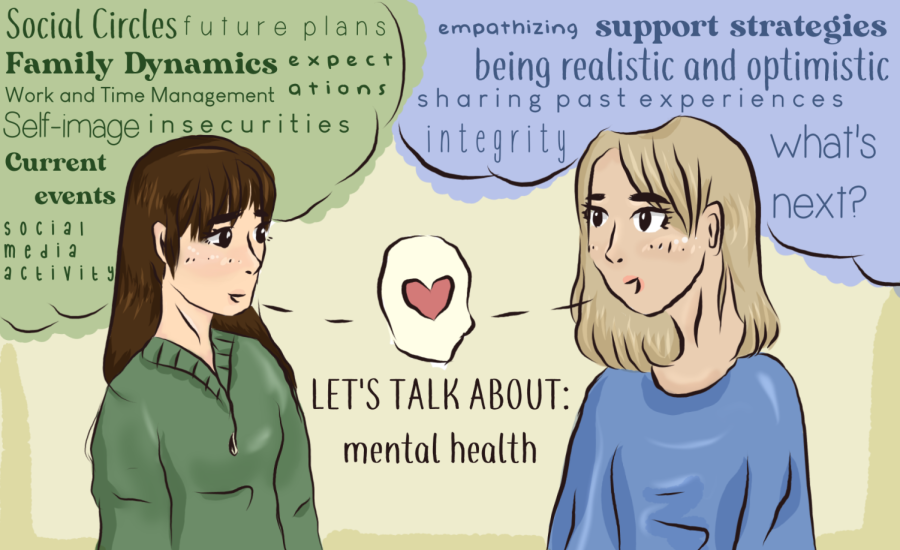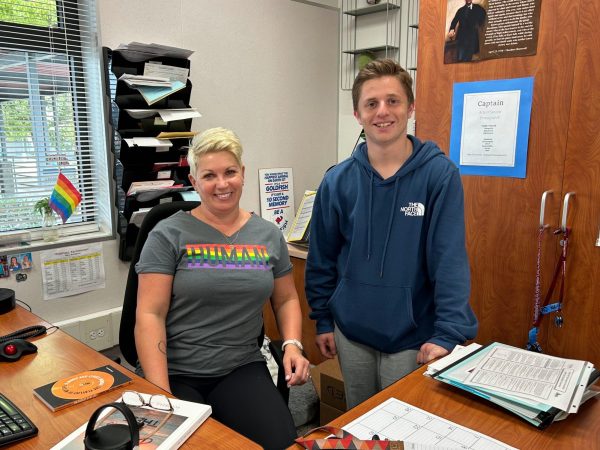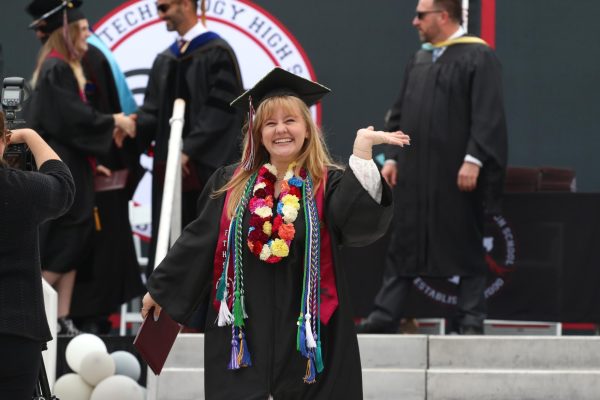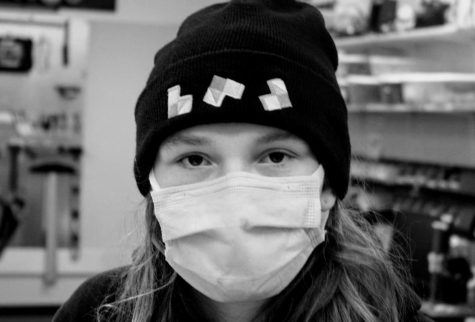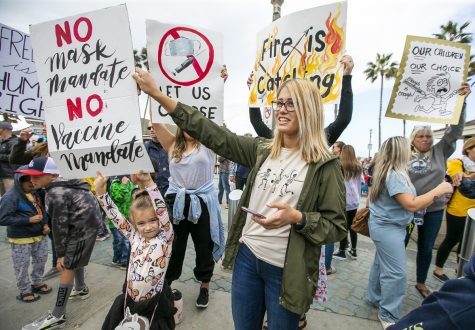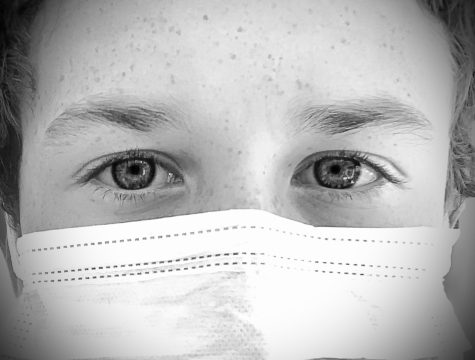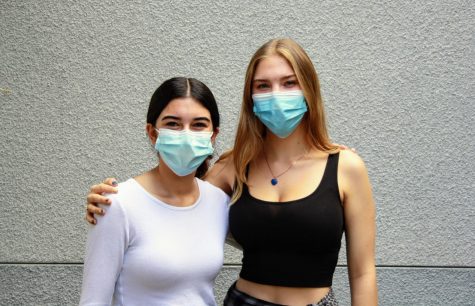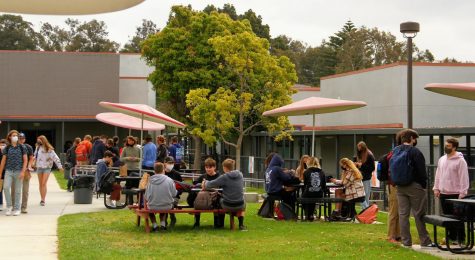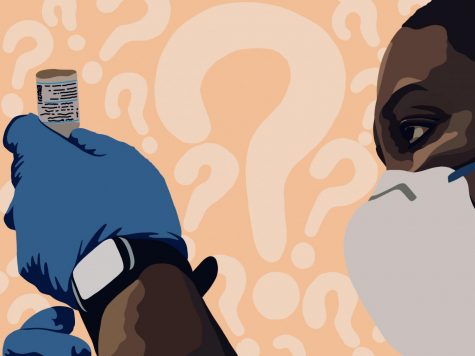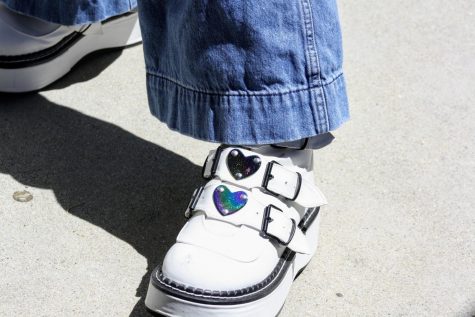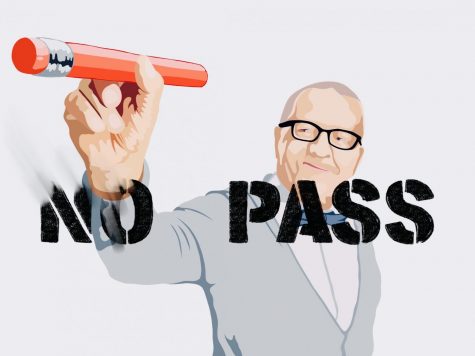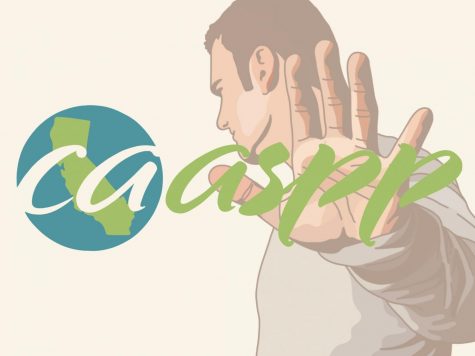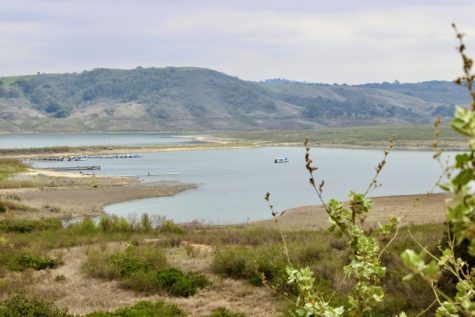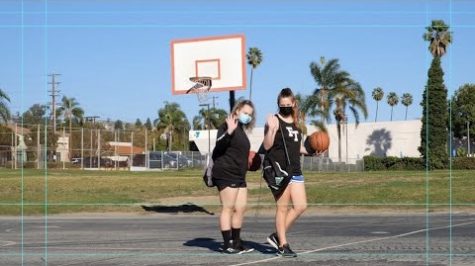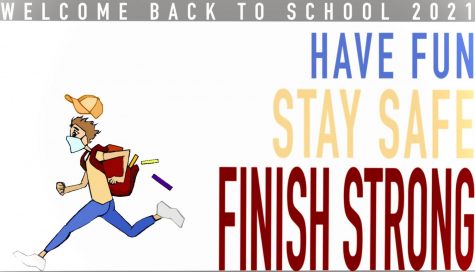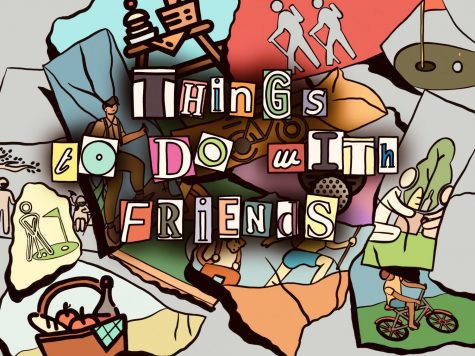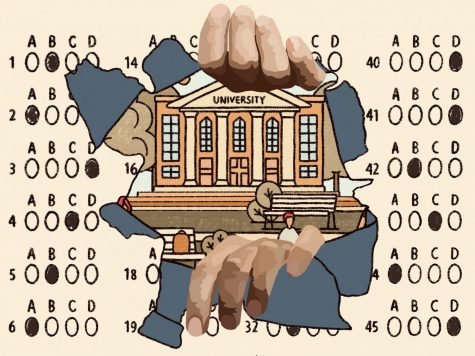Mental health during COVID-19
After the online learning experience, students and faculty are finding better ways to reconnect and open a healthy discussion about mental health and their experiences from the pandemic.
January 5, 2022
Everyone knows the question, “How have you been lately?” During the COVID-19 pandemic, it’s become an increasingly common conversation starter. Throughout 2020 and 2021, students, teachers and counselors alike have struggled to accommodate each of their mental health needs and worked to gain a deeper understanding of each other. Standing in the way of these relationships was a vast void as simple and as complicated as ever: obliviousness, of teachers and counselors to students and vice versa, on how the emotions, thoughts and mental obstacles facing everyone were affecting their work and livelihood.
“Senior class [is] definitely not as connected as past classes and it was hard to keep up with everyone so I have more close friends but less friends I talk to overall.” —Foothill Tech senior, ‘22
Mental health has become an increasingly important topic, especially among teenagers. One’s mental state plays a key role in one’s academic success, social life, self-perception, confidence, general outlook on life and aspirations for the future. In today’s greatly changing society, people are considering intersectionality and the different aspects of one’s demographics as they relate to how they deal with their mental health, often encouraging more empathy and invitation to educate oneself and continue discussions with others.
“Obviously not seeing your friends/family is not the same as seeing them in person, but calling them occasionally is really helpful to check up on them and to make sure they are okay.” —Crystal Valencia ‘25
Exploring mental health and learning better ways to manage it are essential areas of discipline in anyone’s life. As people’s lives have been challenged and changed over the course of the pandemic, the ways in which they process loss, grief, anxieties, depression and harmful, intrusive thoughts have also changed. They too contribute to the ways this pandemic will be viewed going forward.
How did students practice self-care during the pandemic and online learning?
Practicing mindful activities and stepping away from the high-stress media of the pandemic helped Avery Ohl ‘24. “For me, my form of self-care is just staying busy without being stressed. I would do lots of crafts like embroidery, sewing and knitting and while I was doing that I would watch shows. That really helped me a lot.”
How can teachers and faculty improve when it comes to being understanding of their students’ personal matters affecting their schoolwork?
Bridging the gap between students and teachers is an important topic coming off a year of online learning and transitioning back to in-person classes, and teachers haven’t shied away from keeping discussions open with their students on how they can do better. Ohl notes, “I think they should allow flexible deadlines so they are able to accommodate [students] unable to come to class.” With guidelines in place to inhibit the spread of COVID in schools, many students will quarantine if they’re experiencing sickness and take a COVID test to determine whether they can return to school in a timely manner. This process can span multiple school days; many must be cautious about how many days they miss in order to not disrupt their grades and education. Furthermore, Ohl encourages teachers to lend a hand to their students as they go through their personal matters.
What are some topics brought by students unique to the pandemic that counselors are improving their approach to?
Since online learning was facilitated from home, students were overwhelmed by the melding of school and home responsibilities. Counselor Steve Boyd remarks, “We all got used to being home. School was during school hours and home was during home [hours]. Students are having a really hard time now, I feel, with doing things for school at home.” Separating responsibilities is an essential skill not only in work and time management but also in one’s ability to stay in tune with their feelings and emotions.
“Directly after coming back from staying at home for so long, I think I was hit by some sort of wave of “anxiety be gone.” My confidence was up, I have no idea why, and I had a whole mindset of “what I’m doing right now should not bother me, and will not bother me in the future,” and that statement for the rest of the 2020 school year stands true to this day.” —Foothill Tech junior ‘23
What were the pros and cons from meeting with students online versus in-person to discuss emotional matters?
“[Being] online was really hard. It was hard to make connections, it was a bit intrusive. Some people didn’t have a quiet place to talk. [I’m] much happier in person. I feel like I make connections with students, and parents feel like they can make connections with me,” Boyd notes. Being aware of someone’s body language during a discussion about mental health is crucial, and because of the virtual environment of online counseling, much of that gauging ability was lost.
“It’s very hard to stay focused when you can just pick up your phone and start scrolling instead of actually listening. I liked online mainly because of that freedom but it was also taking a toll on my grades. I was a straight A student all the way up to the end of 7th grade when we went online.” —Foothill Tech freshman ‘25
How did students’ interpersonal relationships change during the pandemic?
Online learning was a life-altering experience for many students as they knew it, as the familiar faces they’d see at school became more distant from their daily lives. 77% reported that they felt their relationships with specific people became more difficult or distant, while 23% reported that their relationships stayed the same.
“After I had some extensive mental/emotional stress after some personal drama as an effect of COVID, I looked to online communities to help me console myself and I got a sort of support group out of a specific online community.” —Foothill Tech junior, ‘23
How did students connect with each other virtually/in the online environment?
The physical connection students feel with their peers, friends and family was a distinct quality that many had circumstantially forgone during the pandemic. Despite the troubles in the face of this new time in their lives, students found ways to make the best out of their circumstances and use their new environment to connect with their loved ones. The majority of students surveyed utilized FaceTime or other virtual calling platforms as well as regular texting and online messaging to stay in touch with their friends and family, and many of these students also had occasional meet ups with precautions taken in compliance with COVID-19 safety measures.
“Most of my friends slowly faded away, or we would go months without any communication and randomly text a lot throughout one week. Not having social interaction with people in-person made keeping relationships tough.” —Foothill Tech freshman, ‘25
As the transition back to in-person schooling is essentially finished, students, their teachers and counselors are finding better ways to address and discuss mental health. Although this was an era of immense reckoning, it may just be one of the best opportunities to increase awareness of the student body’s personal matters alongside their academic responsibilities.

